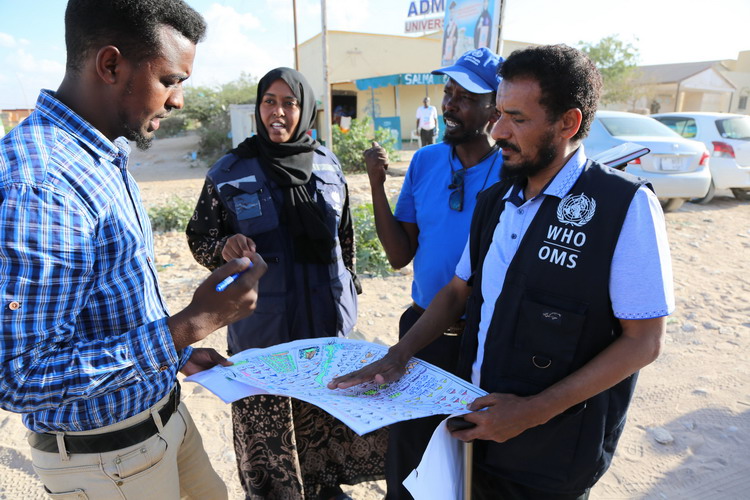
16 April - In Across the Eastern Mediterranean Region, the COVID-19 pandemic is putting unprecedented pressure on health workers, health systems, governments, NGOs, the UN system, and most urgently, on communities and families.
As much as I am filled with the same fear and distress that so many others feel at the continuance and uncertainty of this pandemic, I take great comfort and pride in this Region’s response to COVID-19 – specifically, the work of the Eastern Mediterranean Region’s polio programme.
From Afghanistan to Pakistan to Somalia, Iraq, Sudan and Syria, the polio programme is stepping forward as a vital responder in the fight against COVID-19. In many places, the polio programme is supporting Governments as the first responder and the lead responder.
The polio programme is providing the most extensive operational response of WHO in support of national plans for control of COVID-19, and it has done so both quickly and effectively. Few saw this pandemic coming, but our polio programme rapidly diverted to meet it.
Over more than three decades, the polio programme has built a remarkable machine in each of the more vulnerable countries in our Region.
Infrastructure including surveillance, data management, communications and human resources is now being turned from polio eradication towards the COVID-19 response.
The polio programme’s robust field skills in contact tracing have filled another enormous need. The speed and effectiveness of this pivot underscore the immense value of the polio programme.
I appreciate how polio colleagues are using their experience to guide WHO’s work in communities, to trace the virus, to help children and families learn how to protect themselves against COVID-19, and to help us focus our work on the most vulnerable. I recognize the polio frontline workers, true heroes in this effort, who are distributing advice and aiding in many aspects of COVID-19 response. You may not read their stories in the media, but they are there, quietly working all hours.
Most importantly, I recognize the true courage and resilience of polio staff who are fighting COVID-19 on the frontlines. While their life-saving work is invaluable, I urge them to exercise caution, use personal protective equipment and apply infection control practices to protect themselves, their families and their communities.
Eventually, the time will come for the polio programme to divert back to its core goal.
At that time, in the second half of 2020, we will likely be exhausted by our battle against COVID-19. We will also likely have a more challenging polio landscape before us, with more cases and broader transmission than we see today.
But having seen the polio programme in action in these past weeks, I know we will also be reinvigorated, charged up with the satisfaction of a job well done. Having won the appreciation and respect of communities and governments, we will be energized at the prospect of turning our skills, experience and commitment to the task I know we will achieve: the eradication of polio.
I trust that our donors and our supporters in the scientific, medical and media communities will be with us as we dig deep and draw on all we are learning from the COVID-19 pandemic to end polio forever.
I am confident that together, with the commitment, solidarity and actions of all staff and our partners in the region and beyond, we will not be swayed in achieving our regional vision of ensuring health care for all people everywhere.




